Even with promotional stunts like former NBA player Dennis Rodman and three Harlem Globetrotters‘ (Bull Bullard, Buckets Blakes and Moose Weekes) February 2013 trip to North Korea to run a children’s basketball camp, generally, the U.S. public at-large pays little attention to the enigmatic regime despite a history of saber rattling, eye-poking and nuclear missile testing aimed at the United States and its allies.
Rodman declared upon his arrival to Pyongyang, “I come in peace. I love the people of North Korea!” In that moment, Supreme Leader of N.K Kim Jong-un basked in American love and attention via Rodman and an embarrassing press junket upon Rodman’s return to the states.

Dennis Rodman & Kim Jong-un
Doubtless, most pay a bit more attention to the Pyongyang government when it threatens to bomb South Korea, Japan or the mainland U.S. Or when the U.S. and South Korea have joint military exercises and the North responds with more missile tests. Threats from the North are routine since the shooting war stopped in ’53. At worse, now that it has nuclear weapons it’s a given they will use them given how the West and other colonial nations have dealt with other (“lesser”) nations with inferior weapons of warfare. At best, faining war keeps bigger nations from threatening to conquer or nuke them or refusing them food and aid. Even so, 60-plus years after the war and decades of constant threats by a family dynasty there was Rodman dribbling his way through “basketball diplomacy” “in the role of a current day Forrest Gump.” Days after returning from “hanging out” with Kim Jong-un, son of Kim Jong-il (1941–2011) and the grandson of Kim Il-Sung (1912–1994), Rodman was on U.S. television stumbling through a call for mutual dialogue. Jong-un, who became the supreme leader in December 2011 following the death of his father, gave Rodman a message for Obama. “One thing he [Jong-un] asked me to give Obama, something to say and do one thing,” said Rodman. “He wants Obama to do one thing, call him… He said, if you can, Dennis, I don’t want to do war…” The Obama Administration’s response was to send warships and stealth bombers to the region. Rodman said that if he didn’t “finish in the top three for the next Nobel Peace Prize, something’s seriously wrong.” On his second visit to North Korea in September 2013, when asked about jailed American missionary Kenneth Bae, the “Worm” told the press: “That’s not my job to ask about Kenneth Bae. Ask Obama about that. Ask Hillary Clinton. I don’t give a shit.”
The comedy of “basketball diplomacy” and serial threats of nuclear war aside, if not for Alan Alda’s 70s TV “war-comedy” MASH (Mobile Army Surgical Hospital), or the annual Memorial & Veterans’ Days airing of the ’59 movie “Pork Chop Hill” starring Gregory Peck and Woody Strode, depicting the Battle of Pork Chop Hill (not to be confused with Viêtnam War’s controversial Battle of Hamburger Hill) between the U.S. Army’s 7th Infantry Division, and Chinese and Korean Communist forces in April ’53 – baby boomers, x, y and millennial generations would know very little about the deadly conflict that has resulted in 60 years of constant belligerence on multiple fronts. That’s unless they had family or acquaintances who had fought, was killed or wounded in the war ~ perhaps on Heartbreak Ridge, Inchon or some other known or unknown battlefield. For boomers’ kids and grand kids, the Korean War is just an event in their history book.
According to U.S. Department of Defense data, after 37 months of fighting the U.S. suffered 33,686 battle deaths, 2,830 non-battle deaths and 8,176 missing in action during the Korean War – “police action.”
Chinese and North Korean death estimates vary widely depending on the source (or who’s doing the propagandizing).
Western sources estimate that the Chinese People’s Volunteer Army (PVA) suffered between 100,000 to 1,500,000 deaths (others estimate a maximum 400,000 killed), while the North Korean People’s Army (KPA) reportedly suffered between 214,000 to 520,000 deaths (others estimate a maximum 500,000). Estimates of South Korean civilian deaths range between 245,000 to 415,000, and estimates of the entire civilian casualty count during the war range from 1,500,000 to 3,000,000 (most sources estimate a maximum 2,000,000 killed).
Chinese sources claim that the PVA had only suffered 114,000 battle deaths, 34,000 non-battle deaths, 340,000 wounded, 7,600 missing and 21,400 captured during the war. They claim that among those captured, about 14,000 defected to Taiwan while the other 7,110 were repatriated to China. Chinese sources also reported that North Korea had suffered 290,000 casualties, 90,000 captured and “a ‘large’ number of civilian deaths.” In the “propaganda war,” the Chinese and North Koreans claimed that about 390,000 U.S. soldiers, 660,000 soldiers from South Korea and 29,000 other UN soldiers were killed. Obviously 390,000 (U.S. deaths as claimed by China) is a far cry from the 33,686 U.S. casualties reported by the U.S. Department of Defense.
‘A BRIEF ACCOUNT OF THE KOREAN WAR’ By Jack D. Walker
Prior to WWII, Korea was annexed to Japan with U.S. support. The U.S. backed Japanese colonialism going back to 1910. Japan subjugated Koreans similar to how blacks were treated in the U.S.
In 1945, following WWII, the U.S.S.R. and U.S. divided control of the Korean peninsula. The Soviet Union accepted the surrender of Japanese units above the 38th parallel; the U.S. took the surrender of the Japanese south of that line. A demilitarized zone, or “DMZ,” separated north and south. The two emerging superpowers agreed to dual administration with the Soviets above the 38th parallel and the U.S. below it until an “independent” government could be established by Koreans. The split created problems from the start made worse by the ideological differences of the controlling countries.
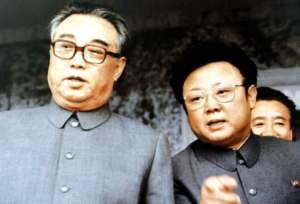
Kim Il-Sung and son Kim Jong-il
People both north and south were against the division of their country. Kim Il-Sung, a Korean exile who had lived in the Soviet Union and outside his native country for over 20 years, let it be known that his communist comrades had fought with the Chinese to help defeat the Japanese during the war and they would fight to unite Korea.
Upon partition, the American Military Government (1945-1948) dissolved the peoples’ committees in the south, suppressed the Communist Party and other leftists.
Unable to reach an unification agreement with the Soviets, the U.S. turned the problem over to the United Nations (U.N.) in September 1947. The U.N. established a commission to oversee a national election that would allow for an end to partition. But the Soviets rejected northern participation in the U.N. election. Even so, two elections took place. One election under the auspices of the U.N. in the south. The other under direction of the Soviets in the north was held in May 1948. A U.N.-sanctioned National Assembly of 198 members was elected in the process. One hundred seats were left vacant for North Korea to fill, but without response.
Syngman Rhee was elected president of the Republic of Korea (ROK) by southern voters in ’48 election. The U.S., which supported the fascist Rhee puppet regime then created the south Korean army. The anti-communist Rhee, also a former exile who had lived and was educated in the U.S., also openly preached military unification of a “pro-U.S.” Korea.
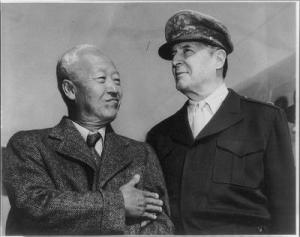
Syngman Rhee and Douglas MacArthur
Contemporarily, Rhee’s legacy is under retrospective scrutiny. In 2006 the Korean Truth and Reconciliation Commission found that the Rhee regime (1948 to April 1960) had put some 30,000 people accused of having leftist sympathies in prison in ’50. His government also forced 300,000 peasants – many who were illiterate or “knew nothing about communism,” to join a state-sponsored National Guidance League. Evidence suggests that most or all imprisoned and many peasants were killed by the South Korean authorities. Kim Dong-choon, a member of the Truth and Reconciliation Commission, said that the mass executions were “the most tragic and brutal chapter of the Korean War.” According to a declassified U.S. State Department cable, General Douglas MacArthur, the Commander of the U.S. forces in Korea, viewed the killings as “an internal matter.”
In the North, the Soviet controlled election choose Kim Il-Sung as premier. The North quickly became the closed society it is today. The Russians trained and equipped an army in the North, withdrew in ’48 and challenged the U.S. to do the same. Yet the U.S. did not completely withdraw keeping military advisers in the south for support.
Then China turned communist in 1949. U.S. President Harry S. Truman believed that if one Southeast Asian country fell to communism others in the region would follow like dominoes and that U.S. trade, anchored by a conquered Japan, had to be protected at whatever cost. The Truman Doctrine preached ‘containment’ – or stopping the communists from gaining any more territory.
On the surface, the war was pitched as a fight between the two Koreas, but it was really a preview of future Cold War tensions between emerging superpowers – the Union of Soviet Socialist Republics (U.S.S.R.) called the Soviet Union or Russia for short, the United States (U.S.) and later, China (the People’s Republic of China). It was the beginning of an age where terms like “mutually assured destruction” and Truman’s (and later Dwight D. Eisenhower) “domino theory” guided U.S. foreign policy. The U.S. competed for world military and political supremacy with the U.S.S.R. Like today, the U.S. promoted the expansion of capitalism under the veil of “spreading democracy.” By supporting South Korea, the U.S. was able to fight communism without directly attacking Russia. On the other side of the coin, Soviet Premier Joseph Stalin wanted to see communism expand as long as his country did not get in a ‘hot war’ with the U.S.. Immediately after World War II, retired U.S. Army Col. Harry G. Summers Jr. wrote in his Korean War Almanac: “…until the Soviet Union exploded its own device in September ’49, the United States had a total monopoly on such weaponry and thus had no fear of a reprisal in kind.” Thus, the North Koreans, Chinese and Russians had to consider the U.S. nuclear arsenal, and the country’s “demonstrated willingness to use it.”
Then in January ’50 the U.S. entered into a ‘Mutual Defense and Aid Treaty with the Rhee regime. In April of the same year, the American National Security Council issued a report (NSC 68) recommending that America abandon ‘containment’ and start ‘rolling back’ communism. This led Truman to consider driving the communists out of North Korea. As Howard Zinn wrote :
“The Korean war mobilized liberal opinion behind the war and the President. It created the kind of coalition that was needed to sustain a policy of intervention abroad, militarization of the economy at home… the Korean war was supported by The New Republic, by The Nation, and by Henry Wallace (who in 1948 had run against Truman on a left coalition Progressive party ticket). The liberals didn’t like Senator Joseph McCarthy (who hunted for Communists everywhere, even among liberals), but the Korean war.., “had given McCarthyism a new lease on life.” Two weeks after presenting to the country the Truman Doctrine for Greece and Turkey, Truman issued, on March 22, 1947, Executive Order 9835, initiating a program to search out any “infiltration of disloyal persons” in the U.S. government…”
Meanwhile, troops dug in on both sides of the 38th parallel and regularly traded shots across the border at one another.
According to Nikita Khrushchev’s 1970 memoirs, Kim went to Moscow for Stalin’s approval to invade the south. Russian staff officers planned the details, but Stalin feared the Americans would detect Soviet involvement and withdrew most of the 7,000 Russian advisors in Korea. Kim promised the Soviets that the war would last only a short time because the South Koreans “would rise up against Rhee’s oppressive government and overthrow it.”
Thus, on June 25, 1950, the North Korean army, backed by the Soviet Union, crossed the 38th parallel in a full-scale invasion of their neighbor to the south, destroying or pushing back any resistance in its path.
Truman responded by sending in U.S. troops to the peninsula where they were soon joined by soldiers from 15 other United Nations member countries.
The Korean War was also important for the civil rights movement. It was the first war fought after Truman’s Executive Order 9981 issued on July 26, 1948. The presidential order bypassed Congress and banned racial discrimination in the armed forces and eventually led to the end of segregation in the services. Truman: “It is hereby declared to be the policy of the President that there shall be equality of treatment and opportunity for all persons in the armed services without regard to race, color, religion or national origin. This policy shall be put into effect as rapidly as possible, having due regard to the time required to effectuate any necessary changes without impairing efficiency or morale.” General MacArthur made no secret that he felt that blacks were inferior and allowed many senior commanders to simply ignore the command. Yet despite opposition, more than 90% of African-Americans soldiers served in integrated units by the end of the Korean War. Many of those returning soldiers became local, grassroots leaders advancing equal rights in their home communities.
In the first month of the war, the North Koreans pushed South Korean and U.S. forces into a very small area on the Pusan peninsula of southeast Korea. In order to break out, General MacArthur hatched a plan to encircle the North Koreans by making an amphibious invasion to their rear. Inchon harbor was chosen as the landing site, partly because of its proximity to the capital at Seoul, South Korea. The harbor city fell on September 15, 1950, and weeks later Allied forces pushed the North Koreans back across the 38th parallel.
Following Inchon, Allied forces chased the North Korean army to within a few miles of the Yalu River, on the border with mainland China. Then the Chinese entered the fray.
Máo Zédōng, fearing an invasion of Manchuria would follow, joined the war on North Korea’s side. Men and materiel began pouring across the Yalu River. The reinforcements allowed North Korean forces to surprise the Allied army, which had overextended its resources in moving north in the same way that the North Koreans had done moving south.
 The use of nuclear weapons was given serious consideration a number of times during the war, according to Summers, especially as a means to stop the advancing Chinese after their entry into the conflict. The Eisenhower Administration came to power in January ’53 openly talking of using nuclear weapons, not just on North Korea but China and Viêtnam as well.
The use of nuclear weapons was given serious consideration a number of times during the war, according to Summers, especially as a means to stop the advancing Chinese after their entry into the conflict. The Eisenhower Administration came to power in January ’53 openly talking of using nuclear weapons, not just on North Korea but China and Viêtnam as well.
Eisenhower warned communist leaders that if an armistice agreement was not forthcoming, “we intended to move decisively without inhibition in our use of weapons, and would no longer be responsible for confining hostilities to the Korean peninsula.”
Thus, after three years, the fighting ended with the signing of an armistice on July 27, 1953. There was no winner as ‘peace’ was never declared by either side. The country remained divided as the south never rose up as Kim had promised the Soviets. Even so, the Korean conflict was soon pushed off the front pages by events in another place in the region called Viêtnam.
(Copyright 2013)



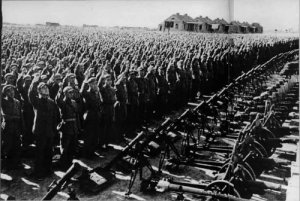
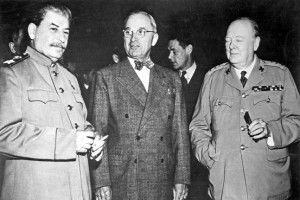
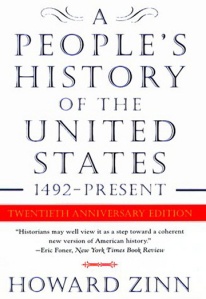
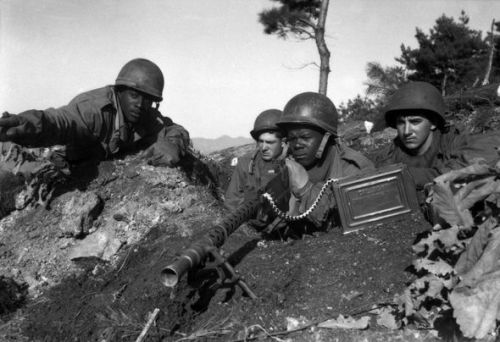
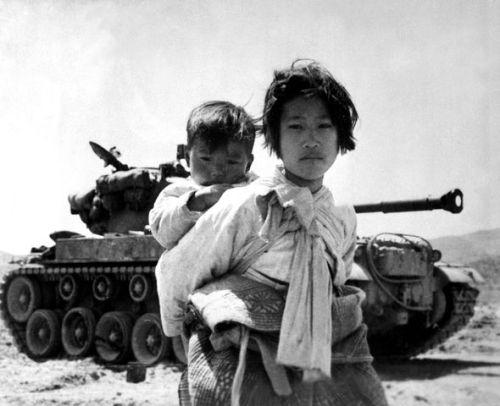
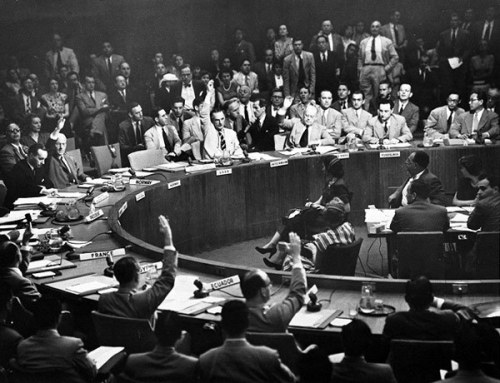
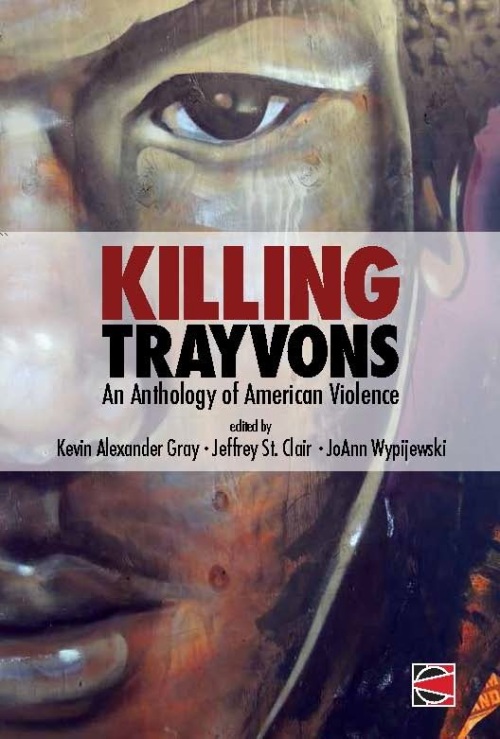

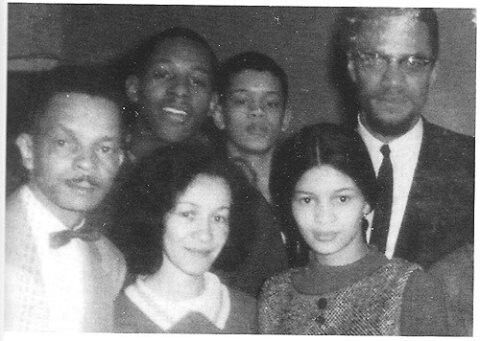

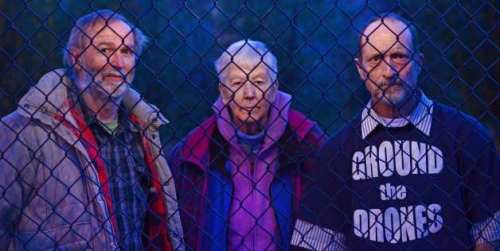



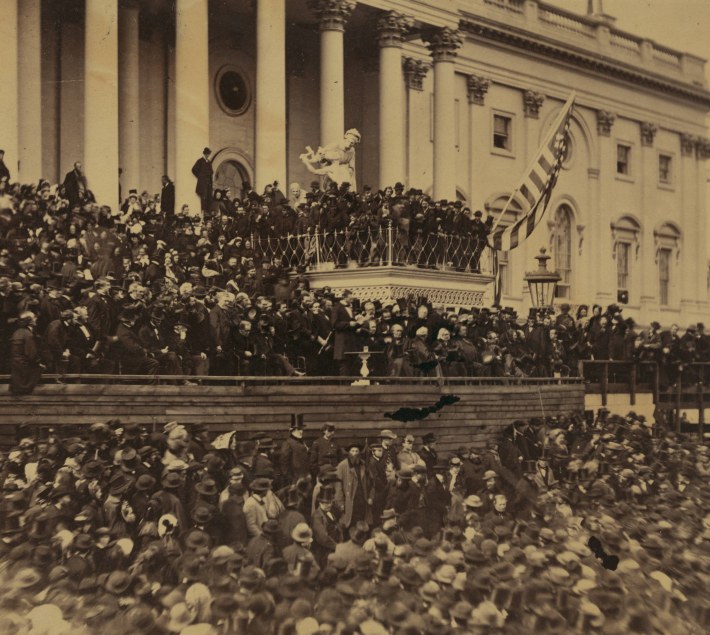
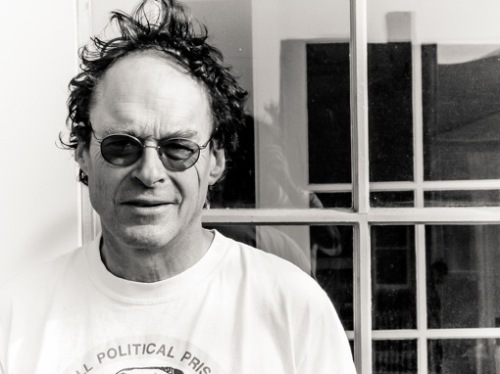


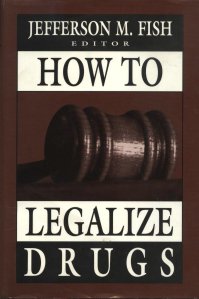





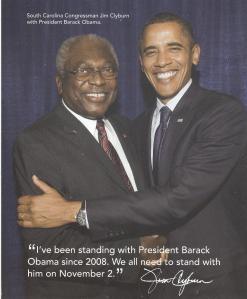




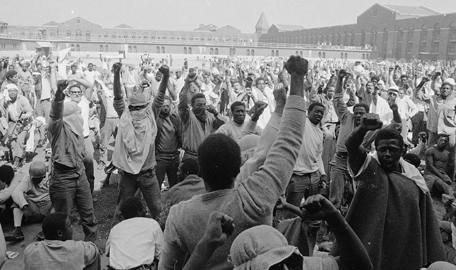
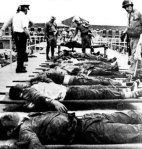
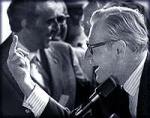





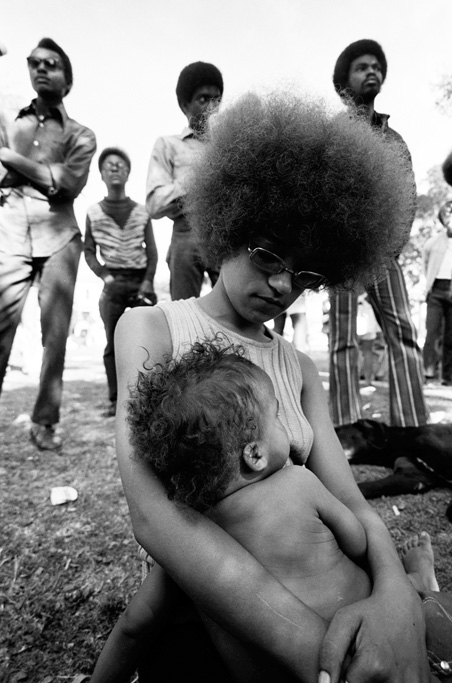


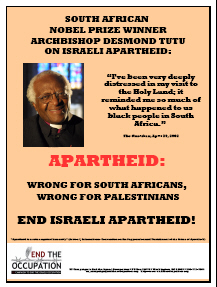

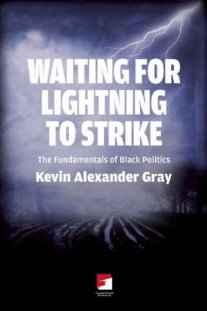















“Kick-a-Nigger” Politics ~ Race, the Poor and the Working Poor | By Kevin Alexander Gray
Welfare is back as the handiest weapon in the racist rhetorical arsenal. It’s back in the speeches of Republican candidates and surrogates, on right wing radio, and even in the language of those young “individualists” who see themselves as politically hip because of their perceived proximity to anarchist types. They believe the poor are poor because they want to be poor. Or are failed individuals. Or have grown so used to poverty that they are satisfied waiting for a check, that they like making the often humiliating trek to the local Department of Social Services office. ‘Welfare’ is back, which is to say ‘kick-a-nigger’ politics is in full swing.
(Click Counterpunch logo for full story)
Share this:
Leave a comment
Filed under American Politics, Black Politics, Obama Administration, Political Ideology, racism, The Clinton Administration, The Obama Administration, white supremacy
Tagged as American Race Politics, “Kick-a-Nigger” Politics, Clinton and Race, Obama and Race, Race Politics, racism, Romney and Race, Romney's 47% comment, The Poor and the Working Poor, Welfare and Race